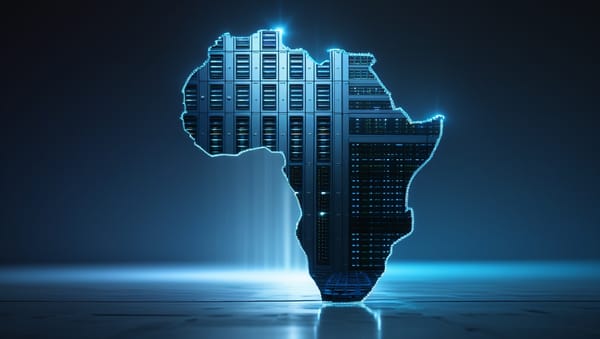A bill in progress in Nigeria
In Nigeria, a bill to modify Nigeria Data Protection Act of 2023 has taken a new step. This text requires social media platforms and bloggers to install physical offices in the country. The project successfully read its second reading in the Senate. It is carried by Senator Ned Nwoko , representative of the constituency of Delta North.
In a statement to the Nigeria news agency (NAN) , the senator said:
“It's time to take control of our digital space. This bill is not against businesses, it is for the good of the Nigerian people. Anyone who says the opposite is not honest. »»
According to him, the absence of physical offices for platforms like Facebook, X (formerly Twitter), Instagram, Whatsapp, YouTube, Tiktok and Snapchat leads to several problems: deadlines in the treatment of user complaints, poor regulation, disinformation, ineffective moderation, lack of local partnerships. He believes that these companies lack understanding of the Nigerian context, which creates a disconnection between users, authorities and platforms.
Legislators argue that a local presence would also promote job creation in the fields of customer service, content moderation, legal compliance or marketing. It would also allow a technology transfer beneficial to Nigerian professionals in the digital sector.
Recognized digital leadership
According to Business Insider Africa , citing data from the Global Web Index , Nigeria is the African country where social media is the most used, and the second in the world, with an average of 3 hours and 46 minutes of connection per day. For Senator Nwoko, this bill is not an attack on platforms or users, but a demand for equity:
“It is a request for respect and recognition of the status of Nigeria as a world leader in digital engagement. »»
He adds that Nigeria deserves, like other countries such as the United States, the United Kingdom, India or Germany, to have national offices for these platforms. With more than 220 million inhabitants and a high digital engagement rate, these companies influence policy, public opinion, entrepreneurship, education and entertainment. But without local presence, applying data protection laws or resolving disputes becomes complex.
Towards increased regulation of bloggers
The bill also provides for measures for Nigerian bloggers. He demands that they have a verifiable office, hold a register of their employees, and be members of a recognized national association, the headquarters of which must be in Abuja. The objective is to guarantee responsibility and professionalism in their activities.
"The legal implications for their absence are just as worrying," said Ned Nwoko.
“Without physical offices, the application of laws, the resolution of disputes and the protection of user rights are made more difficult. »»
For the senator, social media platforms have become powerful ecosystems:
“We cannot continue to have a situation where individuals operate anonymously, sometimes disseminating false information, without structure or responsibility. Like traditional media, bloggers must be duly registered and regulated to guarantee professionalism, transparency and responsibility. »»
A crucial tax question
Ned Nwoko, also a lawyer and chairman of the Senatorial Commission on repairs and repatriation, stressed the tax issue: these companies and bloggers will have to, once registered, pay their tax obligations within the framework of the reform led by President Bola Ahmed Tinubu.
He estimates that Nigeria loses at least $ 10 billion in tax income, for lack of local offices each year.
“In the past ten years alone, we have lost more than $ 50 billion. It can no longer last. If these companies want to operate in Nigeria, they have to pay their fair taxes like any other business. »»
Reservations within the Senate
The president of the Senate, Godswill Akpabio, praised the recommendations of Senator Nwoko, while expressing some reservations. He believes that it is not necessary to force bloggers to have verifiable physical offices because they can exercise their activity from anywhere.
He also recommends consulting experts to enrich the bill and guarantee balanced legislation, respectful of freedom of expression and adapted to the realities of the digital economy.
Kenya on the same path
This initiative comes as Kenya adopts a similar approach. A month before, the Kenyan Ministry of the Interior and the National Administration had also asked social platforms to establish physical offices in the country .
This decision follows the massive demonstrations led by young Kenyans against the 2024 finance bill, which is now abandoned, which offered taxes on essential products such as cooking oil or hygienic towels.
Social networks, in particular Tiktok and X, have played a key role in the dissemination of demonstrations, in particular via the hashtag #rejecthefinancebill2024 , which recorded more than 4 million impressions in a few days.
Between freedom of expression and regulation
In Kenya, article 34 of the Constitution guarantees the independence of the media and prohibits any government interference. In Nigeria, article 22 recognizes the role of the media in government empowerment, but it does not explicitly guarantee press freedom or its applicability.
Compared to countries like Kenya or South Africa, the Nigerian legal framework remains more fragile. Media freedom is often linked to state objectives, which makes it more vulnerable to interference.
While social media users fear an attack on freedom of expression, legislators assure that these bills aim to create a safer digital space, to fight against disinformation, to enforce local laws and to guarantee tax equity.
Written by Kosisochukwu Charity Ani









